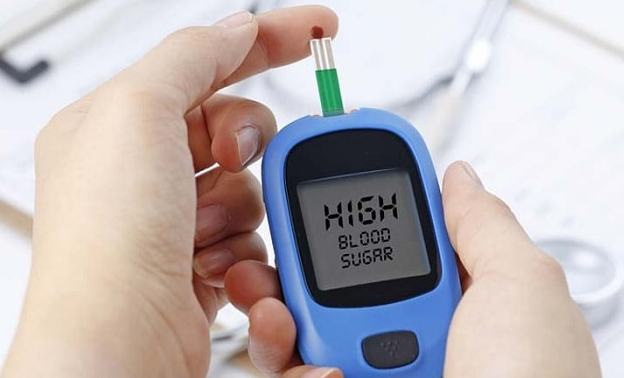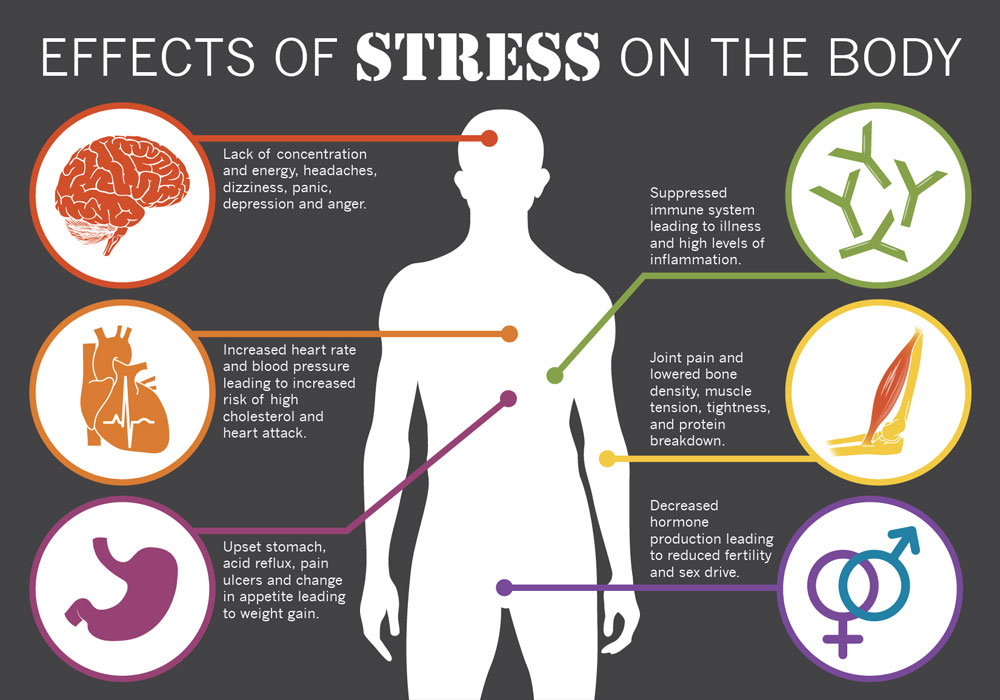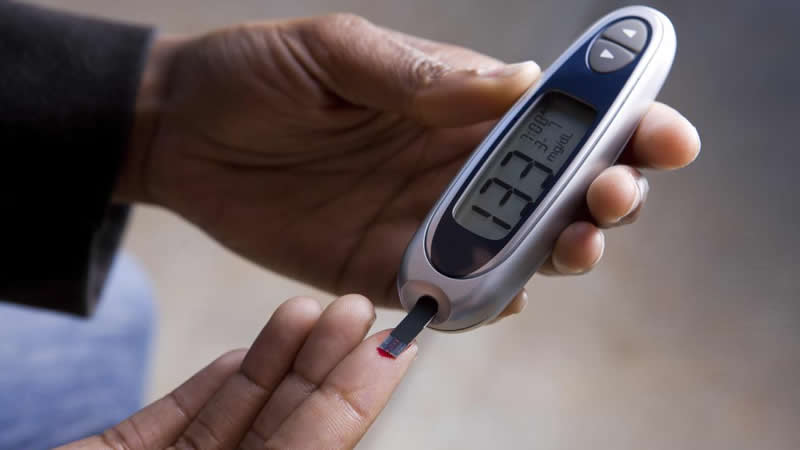A Surprising Link Between Blood Sugar And Anxiety
While the sweet stuff is regularly in the spotlight for its ramifications on physical health, the link between anxiety and blood sugar should not be dimmed. We’re shining the light on the surprising association between the two!
Sugar : The latest villain reigning the obesity and diabetes epidemic the U.S. is facing.
While the sweet stuff is in the spotlight for its ramifications on physical health, the link between anxiety and blood sugar should not be dimmed.
When To Seek Professional Help For Diabetes
If you experience any of the following 5 scenarios, its an indication that you should consider getting professional help for your anxiety:
- If the anxiety is not going away on its own, and what youve tried so far to help manage it is not helpingor is even making it worse.
- If you find that your anxiety is impacting your ability to function in the world, including at work, at school, in relationships, etc.
- If you refuse to go somewhere like school or work unless your blood sugar is over, for example, 250 mg/dL, because thats the only way you feel protected from hypoglycemia.
- If your anxiety is clearly sabotaging your diabetes health. If your A1c keeps going up and up and up, or is sitting consistently well above 8% because your anxiety interferes with your ability to manage your blood sugars in a healthy range, this is a BIG, BIG, BIG sign that its time to enlist a therapist.
- And lastly, simply put: The more severe the symptoms, the more likely its time for professional support. A lot of crying? A lot of yelling? A lot of hyperventilating? Get help as soon as possible.
Anxiety Over Low Blood Sugar
A low blood sugar episode, which can include anything from confusion and shakiness to nausea, loss of consciousness, and seizures, can be very scary. It therefore makes sense that some people with diabetes also experience anxiety related to possibly having a low blood sugar episodeand not just as a physiological reaction to low blood sugar levels.
This anxiety is so common that the term fear of hypoglycemia is commonly used among physicians and researchers. Research has found that a history of experiencing mild hypoglycemia increases FoH in people who have diabetes.
Read Also: Glucagon Lipolysis
Diabetes Anxiety Management: A Controversial Technique
Heymans approach to helping patients overcome their fear of low blood sugars is controversial but a powerfully effective process.
The overall goal is that we help them bring their numbers down step by step, says Heyman. Tolerating the false symptoms of a low at 150 mg/dL is critical. If you can handle the uncomfortable stage of this for a little while, youll get through it and start to feel normal at normal blood sugar levels.
Whats so unique about his approach to this process? He will help you purposefully induce an actual low blood sugar while youre right there in the safety of his office, which inevitably helps you rebuild confidence in your ability to treat and manage hypoglycemia.
I like to send people low in my office in a very safe and controlled way, with lots of glucose on hand, explains Heyman. People struggling with this keep telling themselves, If Im low, Im not going to be able to handle it and treat it. So we give them a safe opportunity to change that belief.
The result is that patients see real-life proof of their ability to identify and treat a low blood sugar.
Heyman said he also helps patients develop different habits around diabetes so they feel more empowered on a daily basis where the risk of hypoglycemia is always real:
How To Lower High Blood Sugar

With careful monitoring and control of your blood sugar levels, you can live a healthy life. There are a number of ways you can lower and prevent high blood sugar.
?Learn to count carbohydrates: When you count carbs or keep track of what you are eating, you can control your blood sugar more efficiently. Set a maximum amount you can have each day for your meal,s and keep track to make sure you do not go past the limit. This helps to stabilize blood sugar and prevent dangerous spikes. Portion control is important too, so make sure your meals are not too large, as these can cause temporary spikes.
?Try meal planning: To help keep track of your carbohydrate intake, start planning your meals. Based on the amount of carbohydrates you can have, plan meals accordingly, so you do not risk going above the set limit. When your meals are planned, you also avoid eating out or getting convenience food, which contains more sugar and fat, and will negatively affect your blood sugar.
?Start a weight loss program: Obesity contributes to diabetes and impairs your bodys ability to process energy efficiently. Losing weight helps your body to use insulin more efficiently, and it reduces fat storage, which can trigger inflammation in the body.
Read Also: Diabetes Low Blood Pressure
Sugar Can Increase Your Risk For Developing Depression
Its hard to avoid reaching for comfort foods, especially after a difficult day.
But the cycle of consuming sugar to manage your emotions may only make your feelings of sadness, fatigue, or hopelessness worse.
Multiple studies have found a link between diets high in sugar and depression.
Overconsumption of sugar triggers imbalances in certain brain chemicals. These imbalances can lead to depression and may even increase the long-term risk of developing a mental health disorder in some people.
In fact, a found that men who consumed a high amount of sugar were 23 percent more likely to receive a diagnosis of clinical depression within 5 years.
Even though the study just involved men, the link between sugar and depression is also found in
to look at how the withdrawal symptoms from sugar can resemble those of certain addictive substances.
Evidence in the literature shows substantial parallels and overlap between drugs of abuse and sugar, explains Dr. Uma Naidoo, whos considered the mood-food expert at Harvard Medical School.
When someone misuses a substance for a period of time, like cocaine, their body goes into a physiological state of withdrawal when they stop using it.
Naidoo says that people who are consuming high amounts of sugar in their diets can similarly experience the physiological sensation of withdrawal if they suddenly stop consuming sugar.
Thats why going cold turkey from sugar may not be the best solution for someone who also has anxiety.
What The Research Says
40% of people with diabetes. This prevalence is much higher than that in the general U.S. population, where the condition affects 18.1% of people.
People with diabetes are at risk of developing low blood sugar, or hypoglycemia. Some of the symptoms of hypoglycemia are identical to those of anxiety.
Additionally, the results of a 2015 animal study suggest that experiencing several episodes of hypoglycemia can increase the likelihood of anxiety. The reason for this may be that hypoglycemic episodes trigger chemical and metabolic changes that physically affect the part of the brain that plays a role in processing anxiety.
Diabetes and anxiety share several symptoms. The American Diabetes Association and the National Institute of Mental Health both list the following symptoms for hypoglycemia and anxiety, respectively:
- feeling on edge or irritable
- difficulty focusing thoughts
The procedures that healthcare professionals use to diagnose diabetes and anxiety are quite different.
You May Like: What Happens If You Stop Taking Diabetes Medication
How Common Are Elevated Symptoms Of Anxiety
| One in six people with Type 1 diabetes are affected by moderate to severe anxiety symptoms. | One in five people with Type 2 diabetes who use insulin treatment are affected by moderate to severe anxiety symptoms. |
| One in six people with Type 2 diabetes who don’t use insulin treatment are affected by moderate to severe anxiety symptoms. |
What Are The Medical Risks Associated With Bulimia And Bed
Both physical and psychological complications can result from bulimia and BED. Physical complications include:
- Higher risk of developing type 2 diabetes
- Worsening diabetes control, and an increased risk of complications, in those who already have the disease
- Joint problems
- Sleep-related breathing disorders, such as sleep apnea
- Obesity
Read Also: What Is A Normal A1c For A Non Diabetic
A Psychologist Or Psychiatrist
You might also like to talk with a psychologist or psychiatrist. These professionals are best placed to make a diagnosis and provide treatment for anxiety. Treatment may involve the following:
- One-on-one counselling
- Medication
- A combination of psychological therapy and medication.
Ask your diabetes health professional if they know a psychologist or psychiatrist in your area who is familiar with diabetes, or try the following options:
- Find a psychologist near you by going to the Australian Psychological Society website at psychology.org.au/FaP.
- Find a psychiatrist near you by going to the Royal Australian and New Zealand College of Psychiatrists at yourhealthinmind.org/mental-illnesses-disorders/anxiety-disorders.
You will need a referral from your GP to see a psychiatrist, but not to see a psychologist.
Your GP can tell you if you are eligible for a Mental Health Treatment Plan to reduce the costs of seeing a psychologist or psychiatrist.
How To Balance Blood Sugar
Some foods that will help to balance blood sugar include almonds , quinoa , millet , hummus , avocado , lentils and walnuts .
Consume foods that release energy slowly into the blood stream such as vegetables, berries, and nuts and seeds.
Addressing blood sugar imbalances involves a combination of dietary and lifestyle measures that minimize the shock to the pancreas and the adrenal glands and stabilize carbohydrate metabolism. It is better to address it now because highs and lows in blood sugar will eventually lead to highs only
- Eat three meals per day and 2 additional snacks if need be early on while working on balancing blood sugar and while getting the hang of eating healthy foods. DO NOT SKIP MEALS
- Provide a balance at each meal/snack of protein, complex carbs, healthy fats and fiber.
- Eat foods closer to the form they are found in nature.
- This can look like:
o a protein smoothie with avocado and greens included for breakfast
o snack on handful of almonds mid-morning
o for lunch have chicken salad on a bed of lettuce with a Bubbies pickle and a side salad
o mid-day snack on raw vegetables and hummus
o for dinner have salmon, roasted sweet potato and a vegetable such as asparagus, broccoli or cauliflower.
o AVOID packages foods, sugary foods, artificially sweetened foods and drinks, refined carbs such as pasta and bread, white rice, dried fruits such as banana or apple chips and processed corn products
Also Check: Can You Be Born With Type 2 Diabetes
Managing And Treating Anxiety As A Person With Diabetes
Getting help for anxiety can be challenging for a variety of reasons.
The first is that mental health issues, in general, all come with the stigma of feeling as though you are weak or flawed for struggling in the first place. The reality is that even though things like depression and anxiety are rarely discussed as openly as topics like your favorite insulin pump or recipes for low-carb bread, they are very common, and you are not alone.
Do You Feel This Way Because Of Anxiety Or Diabetes

Some of the symptoms of anxiety are very similar to those of a hypo), such as trembling, sweating, or a fast heart rate. This can make it difficult to know whether you are anxious, having a hypo, or both. If you are not sure, always check your blood glucose, as this will help you to become increasingly aware of your own reliable symptoms of a hypo. You will learn to understand whether you are experiencing feels of anxiety or, in fact, having a hypo.
Even if anxiety is not related to your diabetes, it can have negative effects on your health, life, and relationships.
Also Check: Which Pancreatic Cells Release Insulin And Glucagon
Diabetes And Anxiety: Everything You Need To Know
Anxiety is very common in people with diabetes, and for good reason.
In life with diabetes type 1 or type 2 there can be a constant feeling of worry and stress throughout every part of every day because your blood sugar is never still. And as we know all too well, blood sugars too high or too low can both have a variety of consequences with varying degrees of danger.
In this article, well discuss what anxiety is, why people with diabetes are more likely to develop generalized anxiety disorders, the latest research on diabetes and anxiety, and treatment options available today.
Can Diabetes Cause Anxiety And Depression
If youre diabetic and having an anxiety attack or going through depression, your high sugar levels could possibly be the culprit behind it. Diabetes and anxiety may have different aetiologies, however, they are interconnected somehow.
Diabetic people may become worried or anxious over various things. From waking up in the morning and monitoring your glucose levels, to weight changes and diet, diabetes can really stress you out.
Since diabetes is a chronic disease and managing can become a hassle, one can get anxious about short-term as well as long-term health complications.
A diabetic person is more prone to infections, kidney diseases, stroke, and many other debilitating conditions, he/she can develop severe anxiety. This can eventually make monitoring and managing his/ her symptoms more challenging.
To manage stress due to struggling with diabetes, you need to follow healthy lifestyle options such as diet, physical exercise, and other stress-relieving activities.
It should be kept in mind that if youre suffering from both, diabetes and anxiety medications should be only used prescribed by your doctor.
This chronic disease, diabetes could also be a risk factor for developing depression, found out in some studies. Its still not completely understood why this happens.
Also Check: Which Pancreatic Cells Release Insulin And Glucagon
Consider Taking A Medication
to help improve your mental state now while you work on other areas of your life. Your anxiety may be directly related to a part of your life that you can change, but while youre in the process of thattaking a medication that helps increase the good chemicals to outweigh the anxiety can make a big difference.
Some medications for generalized anxiety are actually classified as antidepressants:
- Serotonin and norepinephrine reuptake inhibitors
- Selective serotonin reuptake inhibitors
- Atypical antidepressants
- Tricyclic antidepressants
- Monamine oxidase inhibitors
Medications used specifically for anxiety attacks or panic attacks are in a category of their own and work more immediately:
- Benzodiazepines
- Beta-blockers
Some of these medications might have an impact on your blood sugar levels and insulin resistance. Talk to your doctor about the potential of these before starting the drug, so you are prepared to make adjustments in your dosages.
Also, remember that there are several different kinds of antidepressants and anti-anxiety medications, so the first you try may not be the right fit for your body and your depression.
Can Stress Cause High Blood Sugar Levels In Non Diabetics
As weve discussed, anxiety and diabetes might be associated. Stress might also be a risk factor for high sugar in the blood in those who are non-diabetics.
In people who are non-diabetics, stress hormones such as cortisol and adrenaline may cause a temporary increase in blood sugar.
This transient increase in blood sugar levels occurs as a response to stressful conditions either physical or emotional stress. Stress hormones have a big role in this phenomenon.
You May Like: How Long Do Type 1 Diabetics Live
Can Anxiety Cause High Blood Sugar
Yes! Stress and anxiety may play a role in causing high glucose levels in the blood. It has been reported that those who had frequent symptoms of anxiety and stress, their blood sugar levels were quite high.
In recent research, it was found out that anxiety can be a significant factor for developing hyperglycemia.
How and why does anxiety cause high blood sugar can be due to the hormonal change during stressful conditions.
When we are stressed or face a distressing situation, our body goes into fight-and-flight mode and stress hormones are released in the blood. Cortisol, the main stress hormone is diabetogenic, causing the blood sugar levels to rise.
Moreover, epinephrine , growth hormone, and glucagon are also released during stressful conditions and anxiety. They also may be responsible for the high blood sugar levels during anxiety.
Why Anxiety Is So Common In People With Diabetes
Researchers at Yale once said that diabetes and anxiety are practically cousins. When you take a chronic illness that revolves around constant decisions that create constant fluctuations in your blood sugar and those fluctuations can be intensely dangerous you have the perfect recipe for anxiety.
And of course, with both types of diabetes, the constant worry about long-term complications are always present, and something we are constantly reminded of by healthcare professionals and the media.
Don’t Miss: How To Keep Blood Sugar From Dropping
As Model: Anxiety Disorders
This dynamic model describes a seven-step process that can be applied in clinical practice. The model consists of two phases:
- How can I identify elevated anxiety symptoms?
- How can I support a person with elevated anxiety symptoms?
Apply the model flexibly as part of a person-centred approach to care.
Tests Of Information Processing

The results of these tests are summarized in . During acute hyperglycemia, performance was significantly impaired in the Trail Making B, Digit Symbol, and Four-Choice Reaction Time tests. Performance in the Simple Reaction Time test was not significantly impaired during hyperglycemia. The coefficient of variation for the Simple and Four-Choice Reaction Time tests was not significantly different between the euglycemia and hyperglycemia conditions.
Don’t Miss: Common Side Effects Of Metformin

